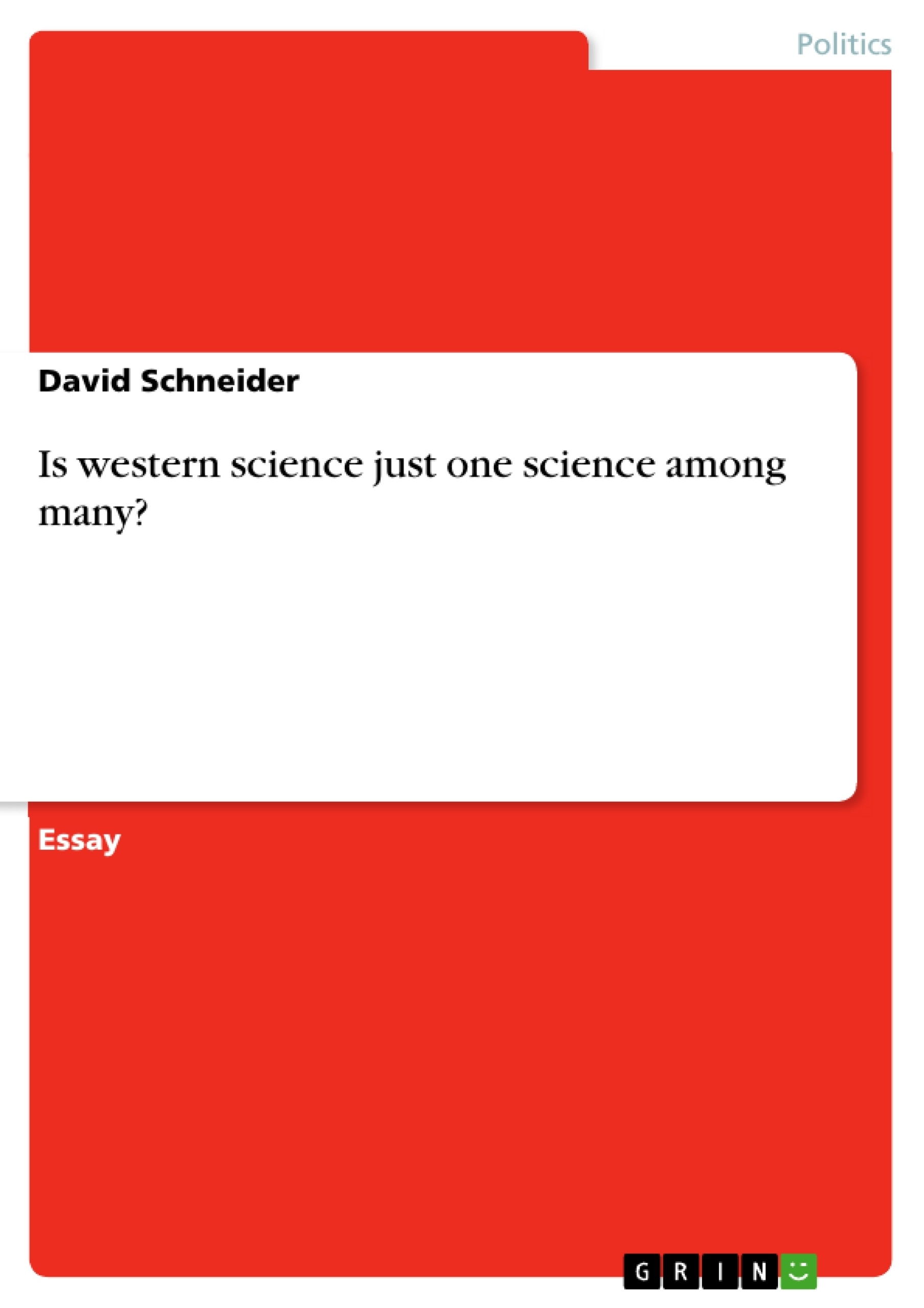Western science is a systematic way of building and organizing knowledge. Its underlying principles are causality, logic, rationality, universality and physicalism. This kind of science is, in line with its claim of universal validity, widely seen as the only way of doing science. Is this truly the case? Or is western science just one science among many?
An application of global epistemic relativism and the equal-validity thesis to these questions leads in a first step to the notion that western science is just one science among many. In a second step, an absolutist objection challenges this view. Three relativist responses to this challenge result in the finding that, theoretically, western science is just one among many. In a last step, it is argued that this finding seems counter-intuitive. This essay does not cover how non-western science could look like in detail.
Inhaltsverzeichnis (Table of Contents)
- Introduction
- Global epistemic relativism: There is a plurality of equally valid sciences
- An absolutist objection
- Three relativist responses
- The problem of counter-intuitiveness
- Conclusion
Zielsetzung und Themenschwerpunkte (Objectives and Key Themes)
This essay explores the question of whether western science is the sole method of scientific inquiry or just one amongst many. By applying global epistemic relativism and the equal-validity thesis, it examines the potential for alternative scientific frameworks to exist alongside western science. The essay delves into the challenges and responses to this notion, highlighting the potential for internal incoherence and counter-intuitive implications.
- Global epistemic relativism and the equal-validity thesis
- The absolutist objection and its critique of relativism
- Relativist responses to the absolutist challenge
- The counter-intuitive nature of multiple scientific systems
- The role of different interests and conceptual schemes in shaping scientific understanding
Zusammenfassung der Kapitel (Chapter Summaries)
- Introduction: The essay establishes the notion of western science as a systematic approach to knowledge building, while questioning its claim to universal validity. It introduces the concept of global epistemic relativism and the equal-validity thesis, suggesting that western science could be just one science amongst many.
- Global epistemic relativism: There is a plurality of equally valid sciences: This chapter elaborates on the three claims of global epistemic relativism and the equal-validity thesis, suggesting that different epistemic systems can coexist and be considered equally valid.
- An absolutist objection: This chapter presents an absolutist critique of the notion of multiple equally valid sciences. It argues that the claim of relativism itself relies on an absolute fact, creating an internal incoherence within the relativist framework.
- Three relativist responses: This chapter explores three relativist responses to the absolutist challenge. It argues that both western and non-western science can be self-ratifying and that the concept of "logic" is not inherently privileged.
- The problem of counter-intuitiveness: This chapter discusses the counter-intuitive nature of accepting non-western science as a valid scientific system. It highlights the difficulty of bridging different conceptual schemes and the limitations of translation between them.
Schlüsselwörter (Keywords)
This essay explores the key concepts of western science, global epistemic relativism, equal-validity thesis, absolutism, self-ratification, logic, rationality, and the role of different interests and conceptual schemes in shaping scientific understanding. It also discusses the challenges of inter-cultural dialogue and the indeterminacy of translation between distinct scientific systems.
Frequently Asked Questions
Is western science the only valid form of science?
While western science claims universal validity based on logic and rationality, global epistemic relativism suggests it might be just one valid system among many potential alternatives.
What is the "equal-validity thesis"?
This thesis posits that there are multiple, fundamentally different epistemic systems that can be considered equally valid, challenging the absolute authority of western scientific methods.
What are the core principles of western science?
The underlying principles include causality, logic, rationality, universality, and physicalism.
What is the main absolutist objection to relativism?
Absolutists argue that the claim "everything is relative" itself relies on an absolute fact, which creates internal incoherence within the relativist framework.
Why is the idea of multiple sciences considered counter-intuitive?
It is difficult for people to accept non-western systems as "scientific" because our conceptual schemes are deeply rooted in western logic, making translation between systems nearly impossible.
- Quote paper
- David Schneider (Author), 2017, Is western science just one science among many?, Munich, GRIN Verlag, https://www.grin.com/document/385485



